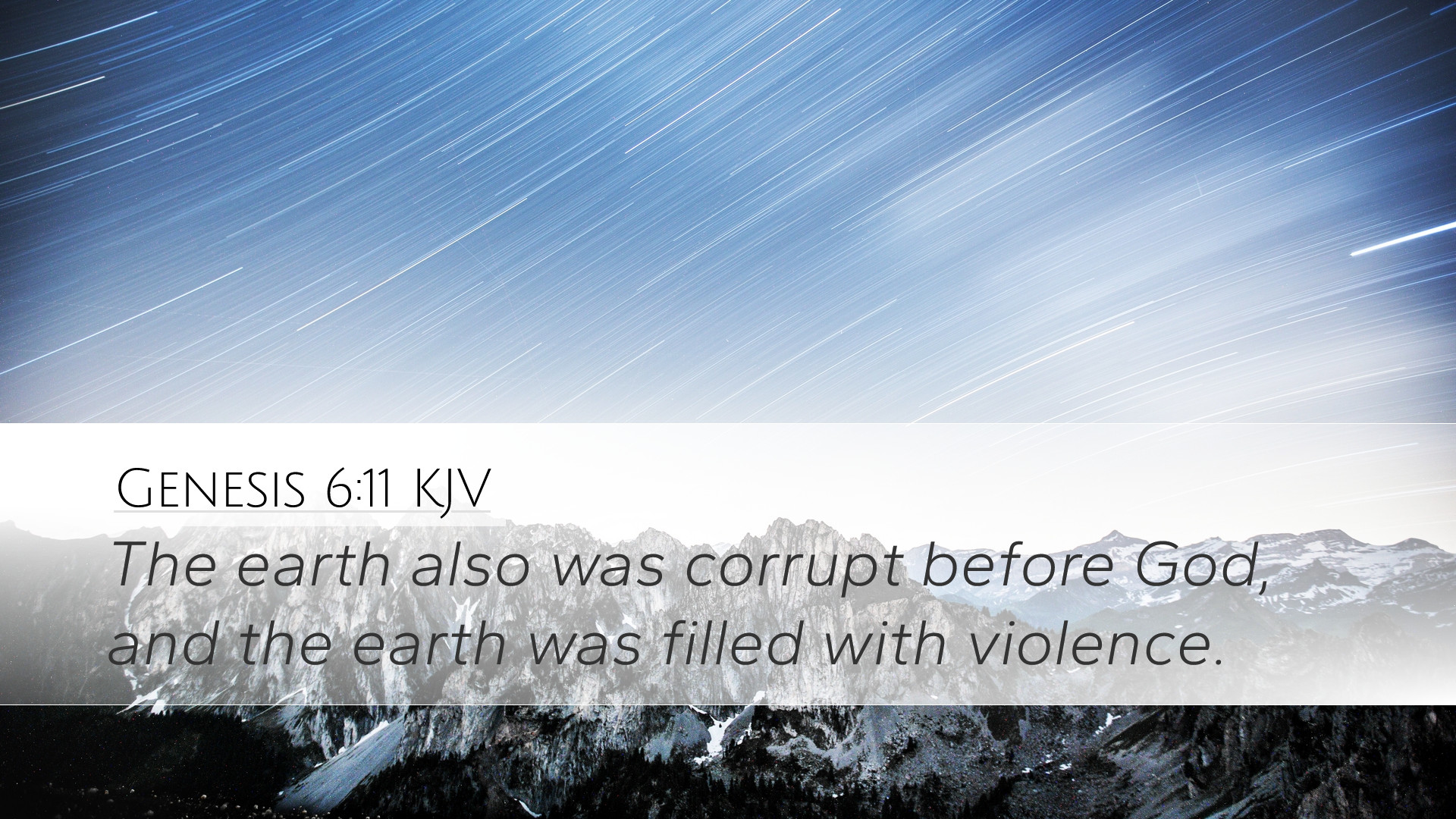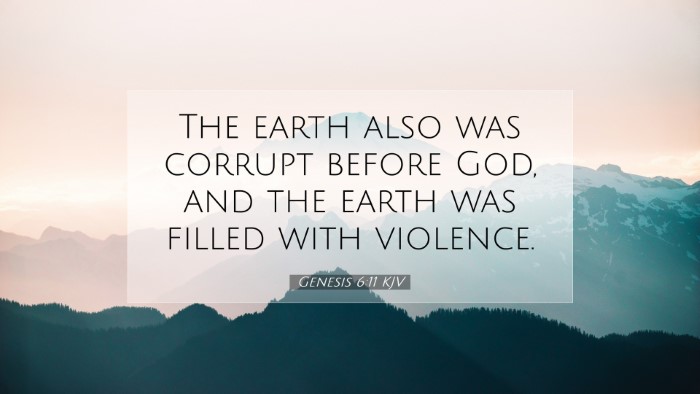Commentary on Genesis 6:11
Genesis 6:11 states: "Now the earth was corrupt in God’s sight, and the earth was filled with violence."
Contextual Overview
This verse occurs at a pivotal moment in the narrative of Genesis, where God reflects on the wickedness of humankind. Before the flood, the world had descended into moral chaos, which set the stage for God's judgement. This passage encapsulates not only the state of the world but also the divine response to human sin.
Moral Corruption
Matthew Henry comments on the moral decay of humanity, suggesting that corruption is not merely a surface issue but fundamentally a state of the heart. He posits that the nature of man, once created in God's image, has become deeply tainted by sin.
Albert Barnes elaborates further by pointing out that the term "corrupt" signifies a complete moral degradation. It implies that every aspect of society was affected, including governance, justice, and personal conduct. He emphasizes that corruption has far-reaching consequences not just for individuals but for entire communities.
The Nature of Violence
The verse also highlights that the earth was "filled with violence." Adam Clarke interprets this violence as a manifestation of the corruption described. He notes that violence in this context encompasses not only physical acts but also encompasses emotional and social unrest, which together reflect a community turned away from divine law.
Matthew Henry adds that the violence of the people was not just towards one another, but it also signifies their rebellion against God's order. This pervasive violence indicates an absence of divine peace and human compassion, marking a stark deviation from God's original creation.
Theological Reflections
This verse challenges readers to reflect on the nature of sin and its implications for humanity. With God's omniscience, He observes the condition of the world, leading to actions that reveal His justice and mercy.
Albert Barnes emphasizes that God’s judgement is rooted in His righteousness. The necessity of divine judgement springs from His nature; He cannot overlook sin. This verse invites theological exploration regarding God’s character as both just and merciful.
Adam Clarke supports this notion by stating that God’s awareness of human actions fosters a deeper understanding of the covenant He will establish after the flood. The need for redemption becomes evident, laying the groundwork for the Gospel narrative.
Implications for Today
Genesis 6:11 serves as a sober reminder of the potential for moral decline within societies. Matthew Henry warns contemporary audiences about the dangers of ignoring the signs of corruption. He highlights that societies today may reflect similar patterns of violence and moral decay.
Albert Barnes encourages readers to discern their roles in combating moral corruption, emphasizing the importance of righteousness and integrity in both personal lives and communities. Every believer is called to be a beacon of light amidst darkness.
Conclusion
Genesis 6:11 encapsulates a critical reflection on human nature's propensity toward sin and the resulting state of the world. Through the lens of commentators like Matthew Henry, Albert Barnes, and Adam Clarke, we understand that this verse is not merely historical but speaks profoundly to the human condition throughout time.
As we reflect on this verse, it is crucial for us, whether pastors, students, or theologians, to engage in a deeper understanding of human sinfulness and God's redemptive plan. There exists hope in God’s overarching narrative, which ultimately points to grace amidst judgement.


